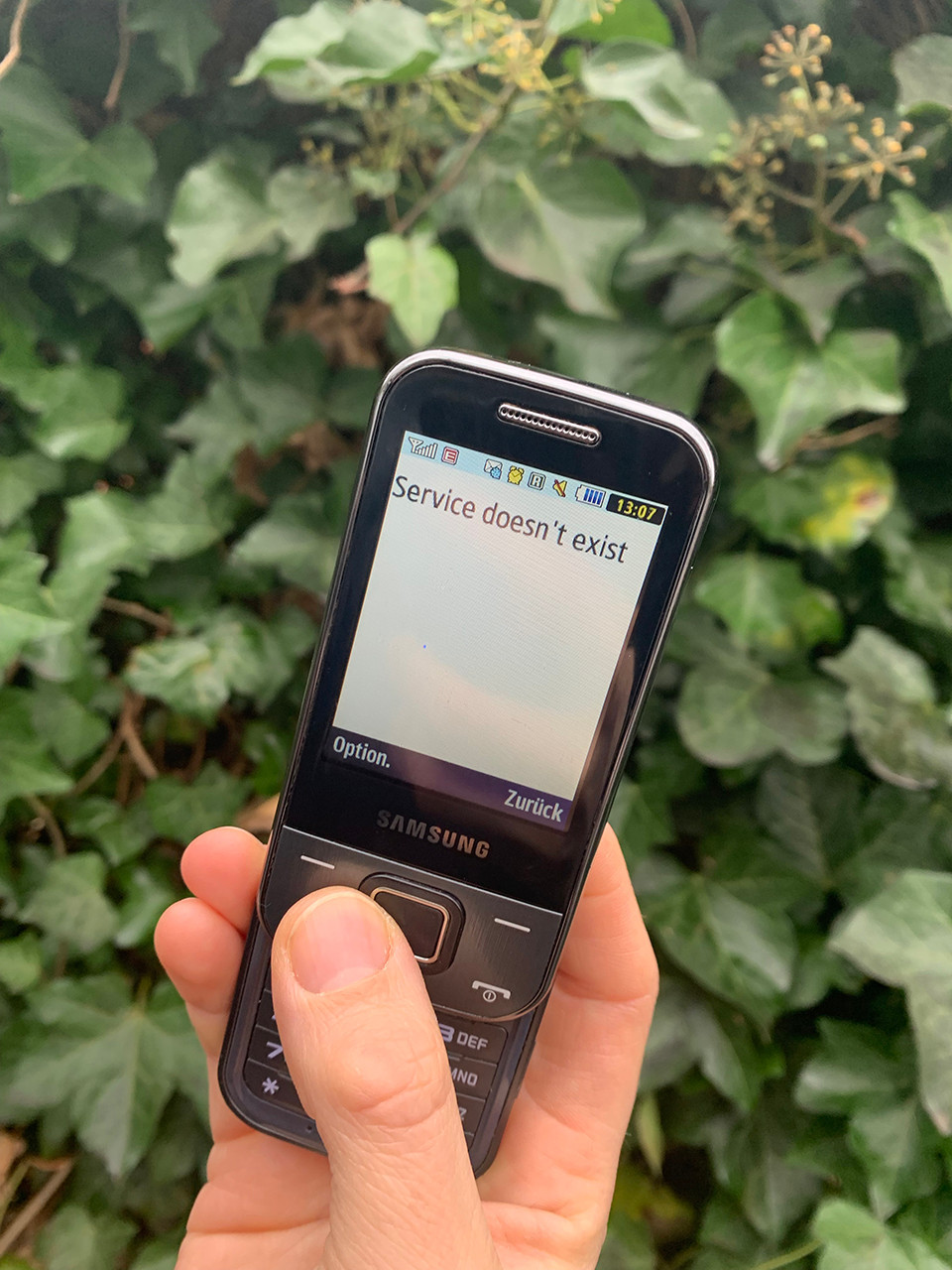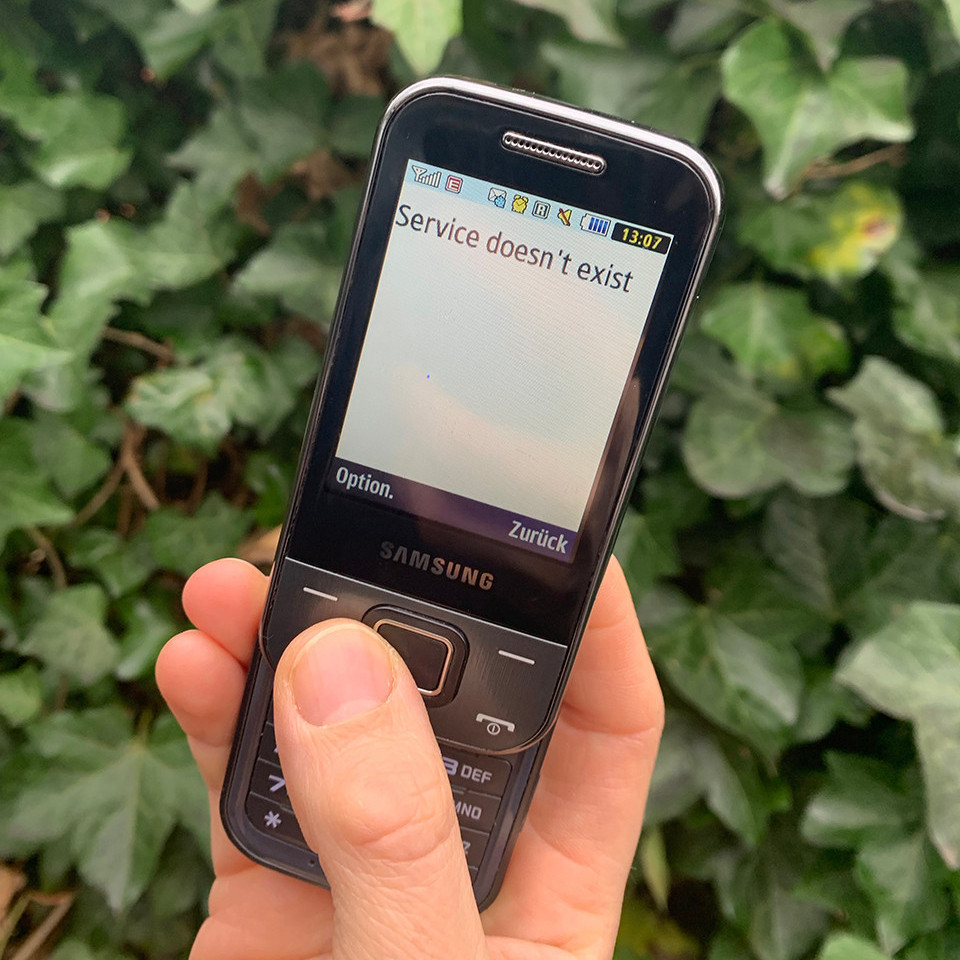
More than smart

By Lisa Winter
We regularly feature a self-test aimed at making our lives more sustainable. This time, photographer Lisa says bye-bye to her smartphone for two weeks – and tells us if she missed it.
Imagine you had to live without your smartphone. Why would anyone do that? Well, there are a couple of reasons. The global rise of smartphones, bringing record sales to the IT industry, is becoming an ever-increasing burden on the planet – and on people. The supply chain of our indispensable companions is long: mobile phones are made of different metals, including rare earth elements, glass and plastic. Miners put their lives at risk to extract the precious metals used for smartphones. In addition, the production of electronic devices is extremely energy-intensive. And still, people tend to get a new smartphone almost as often as they change their socks. Less-than-smart is what you could call this business model that focuses exclusively on short-term profits and creates so many problems for humans and the environment.
And there’s another layer that led me to go smartphone-free for a while: questionable data protection policies and the addictive nature of certain smartphone apps, for example. My plan: no smartphone for two weeks. I am using an old-school mobile phone instead – without Internet access, without social media apps. Theoretically, I would have to walk around with a giant shopper for everything I had previously bundled in one device. Calendar, newspaper, camera, note pad, city map, proof of vaccination and so on. Before I turn off my smartphone, I quickly make a few bank transfers (only possible with my fingerprint) and notify the most important friends, family members and groups. The reactions vary from incomprehension to interest to encouragement. People think I’m a little crazy …



It also forces you to put emotions that go beyond “
Day 3: It took me two days to organise the old-school phone and a SIM card adapter. Every text message moves my new/old phone across the table now – the vibrating signal is not subtle at all and almost louder than a ringtone. Day 5 Now that I have a Samsung GT-C3750, people want to talk to me all the time. I can highly recommend an old phone as THE icebreaker for the upcoming party summer. It catapults you into a nostalgic level of conversation. It also forces you to put emotions that go beyond “
Day 6: I did research: every second smartphone user replies to a message within five minutes. Well, I’m not one of them!
Day 7: The weekend feels super long. It feels good to wake up and lie in bed and not be reminded by an app that you’ve already wasted 15 minutes of the new day on Instagram. It’s also kind of nice not to know that some friends have already done an hour of sport, are vacationing on a beautiful island in the sun or are just super early-birdy on their way to a job. It’s much better to listen to myself for a few minutes and then get up from boredom because nothing keeps me in bed anymore.
Day 8: I start to think about the time after this experiment. I miss sending photos and doing video calls. I also realise how useful voice messages are. My fingers are sore from the 28 text messages (!) I’ve sent since turning on this old phone. I have received 42 texts in total. I can only use 160 characters for every message and try to be as precise as possible. I also pay more attention to spelling and friendly greetings again.
Day 9: I had to cheat and turn on my smartphone to scan a QR code – no restaurant dinner without the Luca tracing app (it’s Covid’s fault). Glancing down, I notice a little red 376 next to the WhatsApp icon.
Day 14: Would I do this forever? Preferably not. At the age of 31, I’m too young to turn my back on digitalization completely. If I refuse to use to TikTok, Snapchat and Co. right now, I’ll be on the same level as my Facebook-refusing sister in 10 years.
Today is Day 17. I still haven’t changed the SIM card and the third charge of my battery is still at 50 per cent. My conclusion: everyone can easily implement a few changes that relieve both the mind and the environment. Look around instead of reaching into your pocket all the time. It will not only relax your neck but train your attention and creativity. Save energy by using your device responsibly. Turn off Wi-Fi when you’re on the road. Close apps properly, turn off unnecessary notifications. Switch off your smartphone from time to time and see what kind of impact it has on you. Pull the plug: leaving the charging cable in the socket for several hours a day still uses electricity. Not much individually – but imagine the impact of all the charging cables in countless sockets around the world.
Past Stories
Copy












